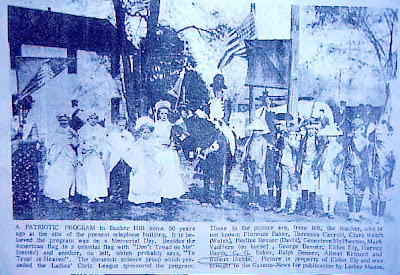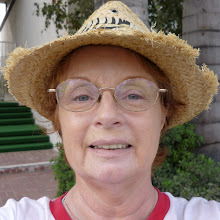 Yes, I did quit after writing my RIP statement.
Yes, I did quit after writing my RIP statement.Big mistake.
Look what resulted! ------------------------------------>
So, let me continue by fulfilling the requirements of the award, namely, to tell of ten things I have learned in my genealogical research about any of my ancestors that has surprised, humbled, or enlightened me and to pass the award along to ten other bloggers whom I feel are doing their ancestors proud.
Here are 10 things I have learned from the search for my ancestors:
1) Moving is good for you. Each generation moved either a bit or a lot farther west until there was no more farther west to move. I have continued that tradition by moving souther and souther over the years, from Seattle to Portland to San Francisco to Los Angeles. I suppose the next logical move would be to San Diego, or perhaps Baja.
2) Changing religion is a heavy, heavy move. It may do wonders for the convert, but it can blow a family apart.
Both of my grandfathers became Christian Scientists in the 1910s. Both ultimately became Christian Science practitioners, one a Wartime Minister during World War II.
On my father's side, the result was a geographical family split. The majority of the formerly Methodist family became Roman Catholics and moved to Florida. The two C.S. sons moved to Seattle. (At least they continued to correspond.)
On my mother's side the result was a change of name by one brother to distance himself from those "pseudo-scientists" in his family.
By the way, I became Jewish (Conservative) by choice in my late 50s, after the previous generation had gone to their own reward. (Yes, I'm a coward.)
3) My mother had an uncle who taught paleontology at UCLA. He is known to history as Roy Moodie, but to the family he's that crazy uncle who left the family (see #2 above).
4) My father wrote a master's thesis. So did my mother. The difference is that I knew about hers. Neither degree was awarded, that I know of.
On second thought, his was written as part of a paper company program in paper making and did not entail a sheepskin. Hers was for the University of Washington. Hers did entailed a sheepskin. He was very traditional about a woman's place being in the home. I was born in 1946. If you recall those years, you can figure it out.
5) Those who did not die early of disease survived a lot longer than we generally assume.
What? Well, the 1880s generation didn't last much beyond 60, but the previous generations lived well into their 80s. This might explain why my father, at age 87, complained daily "Why am I still here?" instead of accepting what he considered to be great age.
6) Things don't always go the way you expect: My mother predeceased my father. I gained a step-mother after I was 45 and my father was 80. And I loved her dearly.
7) A paternal grandmother paid a famous genealogist to trace her line back to the Mayflower so that she could join the DAR. He did. And she did. But he was a fake. The line doesn't connect, and the connecting person never existed.
8) There is a printed book with part of my family line, the Tirrills. Well, whatever. There are multiple pronunciations for T*R*L and even more spellings. The first immigrant was William Therrell shortly after that Mayflower adventure. At least he's documented.
There are several organizations dedicated to the name, such as Terrell Trails.
Mary Hannah Tirrill, the grandmother from #7 would have appreciated that.
9) Lots of families had lots of kids. And some of them survived. Sometimes only one. Did people back then love their newborns less? What do you think?
My father's father was the third child and third son born to his parents. The previous two went to the grave before their first birthday. What effect did this fact have on him?
10) I'd always known that we had artifacts from our family tree. My mother had a book of tin types, for example. None of that interested me. But after my grandfather's demise, I found a tiny Bible with a name in it that did not appear on any of my lists. Finding that long lost uncle who had played a major part in my grandfather's emotional life got me interested in genealogy.
For that tale, you'll need to wait until next week.
Thank you, Rootdigger, for the award.








